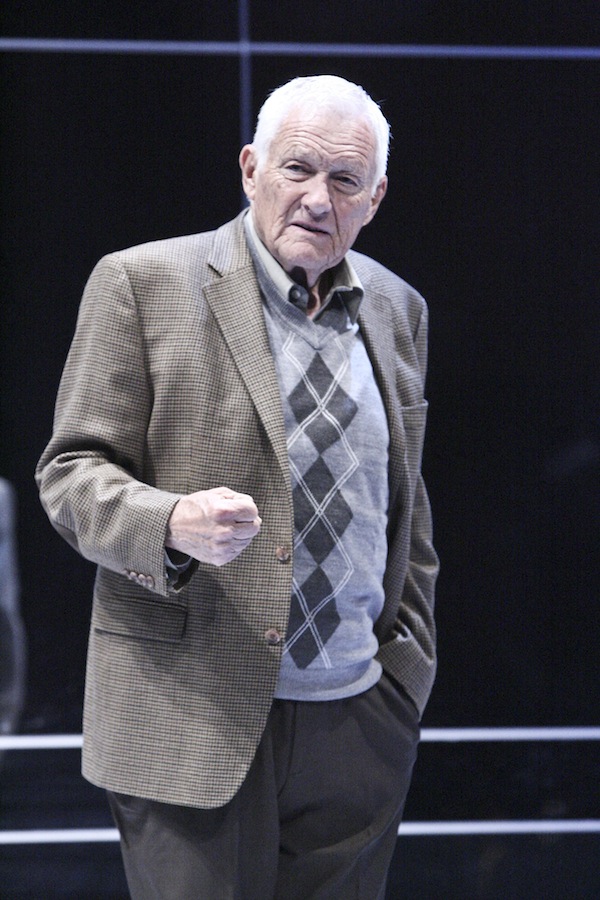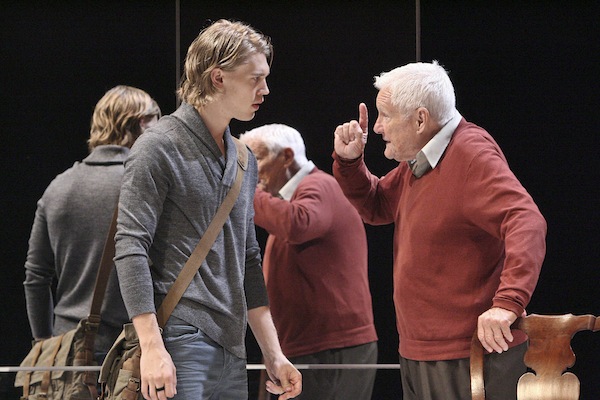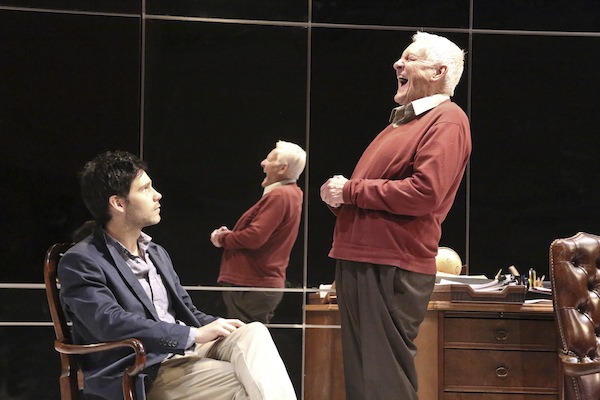Death of the Author -June, 2014
Thank you Orson Bean for a lifetime of laughter and admiration. You alone already make Death of the Author worth the price of admission.
You had me when you made your first eucalyptus tree out of newspaper as a stand up comic on TV. I wasn’t really sure what you were saying, but your presence, perfect timing, voice and effortless manner won me over.

And so it has continued over all these years. Over 200 appearances on the Tonight Show proved I was not alone, yet even after all your award-winning roles, and the just plain enjoyable ones on TV, laughter still wells up as the memory of it.
And so, from Mr. Bean’s first moment on stage in Death of the Author, the stage is his. A bon vivant yet generous professor to his protégé, he does everything in his power to set his academic home in good order by promoting his protégé before leaving it, with one major challenge in the form a student.
Death of the Author is the name of the play and also of Roland Barthes’ seminal essay advocating Literary criticism from the direct point of view with no incorporation of intentions or biographical context allowed. In other words writing and creator are unrelated.
Hence we have, in the play of the same name by Steven Drukman, premiering at the Geffen Playhouse, a play in which circumstances that seem quite obvious at first, are not as obvious when considered in context. It is that the circumstances alone can be used to rationalize bad behavior and avoid the consequences of it.
The play opens at “one of the finest universities in the country,” as the program notes, with young adjunct Jeff (David Clayton Rogers), literally calling pre-law math major, Bradley (Austin Butler) on the carpet for plagurism in his paper on postmodernism. It seems clear cut enough that the act is enough to fail the student. The stakes are high: graduation from university and a new job.
We soon learn that the adjunct is from the wrong side of the tracks and resents the rich, somewhat indulged student. His way of dealing with it is by acting almost obsequiously toward him, stretching out the procedural process of punishment, and introducing incense and a pat on the shoulder to calm him down.
The entitled student, meanwhile, presumes he can bend the system to his prerogative, and when he can’t goes over the adjunct’s head and also makes a good case for putting quotes around his entire work as a defense. And in the broadest sense, he did have an argument.
The fact that Austin Butler seems a dead ringer for McCauley Caulkin led to an early judgement that the rich, petulant student would come out on top, even as he practices the principles of postmodernism without the slightest regard to their merit or the merit of a literary education.
Bradley even has ex-girlfriend Sarah (perky but strong, Lyndon Smith) wrapped around his finger, who becomes girlfriend and again “ex” in one day. And, as it is revealed, he has done the same with the young instructor as well.

Written by Steven Drukman, Director, Bart DeLorenzo, kept the action going as a clip that kept interest. The Set designer: Takeshi Kata is the Lighting designer: Lap Chi Chu is the Costume designer: Christina Haatainen-Jones
Music and sound designer: John Ballinger
The production was made possible because the production was a recipient of both the Edgerton Foundation New American Play Award and a Theater Development Grant from the Laurents/Hatcher Foundation.

www.GeffenPlayhoue.com (310) 208.5454.
